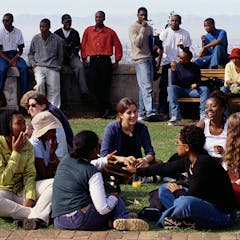
Articles on Gender inequality
Displaying 41 - 60 of 181 articles

The recent federal election could be a game-changer for organizational gender inequality. The proposed Canada-wide child-care strategy could have a profound impact.

The problem of gender-based violence and femicide in South Africa is structural and fuelled by inequalities that transect race, class, gender, sexuality and age.

Greater urgency is needed in the response to pandemics, to end AIDS and to end COVID-19.

Despite the emancipation of women in China in 1949, sexual harassment and inequality in the workplace are still the norm.

Racial and gender disparities in access to work are entrenched features of the South African labour market.

At the heart of the issue for school children, parents, caregivers and teachers is to confront from a very young age the question of sex, sexuality and gender.

Over 15 seasons, 90% of all opera productions at The Royal Opera credited a male director.

Theatre is able to create a space for discussion about how and why women experience physical and emotional violence.

The heavily male community of jazz musicians and audiences have created barriers to success for women in the genre.

These appointments provoked debate in Uganda, reflecting both the constraints and the possibilities of women’s rights reform in an authoritarian country.

Promoting entrepreneurship will help reduce unemployment in South Africa. But the government has to step up its game.

In rural Kyrgyzstan, 1 in 3 marriages begins with an abduction. Older generations see this as a harmless tradition, but two brides have been killed since 2018. A study finds other problems, too.

The high-profile athlete’s struggles raise questions about society’s views on mental health, as well as the effects of race, gender and fame on well-being.

Australia has gone backwards in global gender parity rankings, with even universities, which should be leading the way, failing on this front. But women are now saying enough is enough.

Policies are needed to prevent child marriage and protect women who marry as children from abusive relationships.

Quota systems provide opportunities for more women to stand for election. But they’re not enough.

You might expect progressive policies in our universities, but a parental leave system of primary and secondary caregivers – the first 93% women, the second 96% men – perpetuates the gender gap.

Virtual assistants and robots are frequently given female attributes. To curb the massive use of such gendering in AI, we need to better understand the deep roots of this phenomenon.

Pakistan’s president is facing a backlash for his comments on sexual violence against women.

Music recommendation algorithms are more likely to suggest music by male than female artists.
